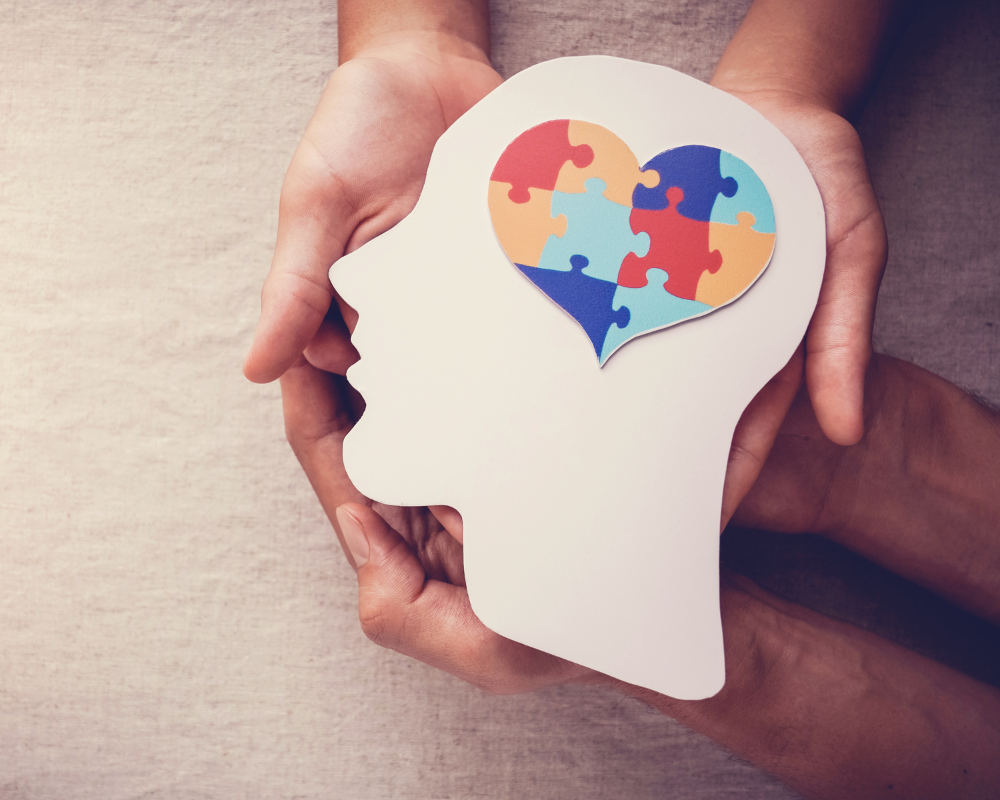According to the American Psychological Association, postpartum depression is a persistent feeling of loneliness, sadness, and anxiety after giving birth. This is a mental health problem, unlike the “baby blues,” which is transient and not considered a mood disorder.
It is also different from postpartum psychosis. This is a more severe psychiatric problem where mothers experience hallucinations and delusions. It is much more common to experience depression after giving birth. It can be associated with postpartum hair loss and cause severe problems if left untreated.
Autism spectrum disorder or ASD is an alteration in the neurological framework usually diagnosed in children. It affects how patients learn, behave, and communicate.
Instead of being a single entity, it is an umbrella term that includes several conditions. It is a spectrum because every patient experiences an individual range of symptoms.
Autism spectrum disorder is not limited to ethnicities or gender. It has a genetic involvement, and it is a lifelong disorder. However, different treatments have been found to improve their quality of life and functioning.


There is an impressive number of symptoms included in the spectrum. As noted above, every patient experiences an individual type. Thus, symptoms in one patient are not to be compared with another. They may display the following signs and symptoms:
There is currently no consensus in the scientific community about whether or not to recommend TMS to treat autism officially. However, scientists share their enthusiasm in research papers and international conferences about the potential benefits of TMS therapy has to bring.
They mention excellent experiences in increasing indices of information processing, attention, and a reduction of irritability and repetitive behaviors. However, ASD is a very complex entity, and there are many variations among patients. This is partly why the actual benefit is so difficult to measure.
A recent systematic review of the evidence found 23 studies about TMS treatment for autism spectrum disorder. Most studies had the usual patient with repetitive behaviors and social interaction problems. They evaluated symptom improvement by measuring working memory and other cognitive variables.
After analyzing the evidence, they found many improvements, especially in repetitive behavior. Social and cognitive improvements had less robust improvements, but they were still positive changes.
Transcranial Magnetic Stimulation or TMS works by sending signals to the brain through a series of electrodes. They are placed on the skull, and the magnetic stimuli change neuron connections and help reestablish brain chemistry in many areas.
Different brain areas have been evaluated in studies with successful results. And two variants of TMS treatment, known as iTBS and rTMS, have been tested with improvements held for up to 6 months.
Autism Spectrum Disorder is a very complex entity. Evaluation and treatment should be individualized depending on the signs and symptoms. Thus, creating a protocol treatment with transcranial magnetic stimulation isn’t easy. Still, the evidence so far shows a positive response to the treatment. Patients tend to reduce their stereotyped and repetitive behaviors. They may also offer some improvements in their social and cognitive skills. What’s more, TMS treatment does not have worrying side effects. It is a safe alternative and has been shown helpful in various mental health conditions.
“If, while waiting for your appointment to be seen by a psychiatrist or Qualified Mental Health Professional, your situation deteriorates or you experience thoughts of harming yourself or others, please call 911 or proceed to the nearest emergency room immediately. You may also call the suicide hotline at 800-273-8255.
*** For any medical procedures, patients respond to treatment differently, hence each patients’ results may vary.
****Information on this site is not intended or implied to be a substitute for professional medical advice or treatment. All content contained on or available through this site is for general information purposes only.
*****By using this website and sending us your information you are giving us permission to contact you by electronic and non–electronic means. We also track the conversions and collect user data to improve marketing.
******If you are vision-impaired or have some other impairment covered by the Americans with Disabilities Act or a similar law, and you wish to discuss potential accommodations related to using this website, please contact us.
We specialize in treating moderate to severe depression for all ages with Transcranial Magnetic Stimulation (TMS therapy). TMS is the most advanced FDA-approved depression treatment.
